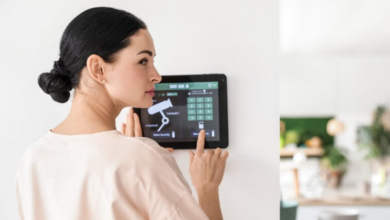Walkie Talkies vs. Smartphones: Which Is Better for Communication in Remote Areas?

When deciding what is best regarding communication, especially in remote areas, it may be tricky to choose between a walkie-talkie phone and a smartphone. While smartphones are generally handheld devices for every purpose, walkie-talkies are designed for better communications where network connectivity is very poor. Each device has its benefits under different conditions and if needed.
Read on to learn the advantages of using a walkie-talkie phone instead of a smartphone in different parts of the wilderness. This information will help anyone looking for a new gadget for their next hiking or exploration trip.
Network Independence
An advantage of a walkie talkie phone especially when used in a rural setting is the fact that it does not need the internet connection to work. Walkie-talkies, on the other hand, use radio waves for signal transmission, allowing you to communicate regardless of the distance between you. This also offers the advantage of not relying on cell towers for communication. This is helpful in rural areas, where one might find a very low network signal on their smartphone.
Smartphones on the other hand need either cellular or internet connection to operate, and therefore cannot easily be used in remote areas. If you are about to travel to a rural area of the country, a walkie talkie phone is more effective in communication than network coverage.
Durability and Battery Life
It is common to find walkie talkie phones being constructed for areas that have a lot of dust or other unfavorable environment factors for other phones. They are usually more robust than smartphones, especially with designs that are waterproof and have higher battery capacity. The use of walkie-talkies is also advantageous, especially in the areas where charging may be a problem, as it does not require charging frequently.
On the other hand, smartphones are likely to have a short battery life should you be able to use data, GPS, or several applications.
See also: The Essential Guide to Custom Firefighter Radio Straps: What You Need to Know
Range and Group Communication
The other benefit that can be associated with a walkie-talkie phone is its suitability in supporting group communication at a given instance. Walkie-talkies are convenient in the sense that several people can use the same frequency, and they can coordinate on a real-time basis. This is advantageous to outdoor groups, emergency teams, or employees in distant regions of the company or on the job site. Mobile phones, as much as they have group messaging and calling, can be problematic if signals are poor.
When a person is in broad communication with many people, they need a system that allows real-time communication, and this can best be offered by a walkie-talkie phone.
Conclusion
When comparing a walkie-talkie phone and a smartphone for remote communication, it’s easy to highlight the key benefits of walkie-talkie phones. These include network independence, device durability, and real-time group communication. Smartphones are advanced gadgets that offer efficient interconnectivity and flexibility in urban settings. However, walkie-talkies provide a more reliable means of communication in remote areas, as they rely on range rather than a network connection.
In any case, it will largely depend on your particular need in communication equipment, however, a walkie talkie phone is a rather useful means to provide safety and connection, necessary for people, who work in isolation.



